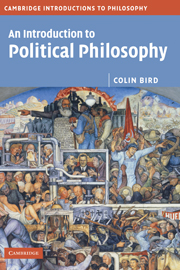9 - Democratic rule
Summary
Democracy is today a central part of the self-image of Western nation-states. This is no disinterested self-description. It is also a cherished self-image. Hence the celebratory, even self-congratulatory, tenor of much contemporary discourse about democracy: it is, our leaders tell us, a noble yet realistic political ideal, worth fighting and perhaps dying for. And they continually remind us how fortunate we are to live in societies committed to realizing it, and in large measure (allegedly) succeeding in doing so. The endless incantation of this view may lead us to take it too much for granted. This chapter asks whether there is anything to be said for it.
What is democracy?
“Democracy” is an adjective (sometimes an adverb) masquerading as a noun. Literally, it means “rule of or by the people.” But this concept does not really designate some simple nameable object like a stone or a cat, still less any sort of natural kind. Rather, it refers to a possible and variable property of a particular social practice, the practice of “ruling,” or (more broadly) that of “collective decision-making.” The focal usages of the concept of democracy are therefore adjectival or adverbial qualifications of such practices, as in “This decision was reached democratically”; “The legislative process in Pacifica is very undemocratic”; “Democratic procedures promote freedom.”
Of course, we do often speak of certain regimes or states as “democracies” tout court.
- Type
- Chapter
- Information
- An Introduction to Political Philosophy , pp. 201 - 222Publisher: Cambridge University PressPrint publication year: 2006



